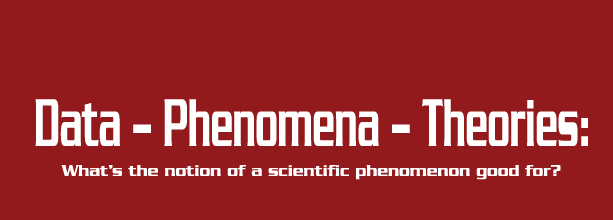One reason might be that the notion is generally considered as unproblematic in the sense that there is wide agreement as to what it means. This, however, is not the case. One way to understand the notion of a scientific phenomenon traces back to the ancient astronomical program called “Saving the phenomena” which claims that astronomical theories should account for the observed orbits of celestial bodies without violating the principles of Greek natural philosophy. In this sense, scientific phenomena are observed facts that should be explained. As Bogen and Woodward (1988) have pointed out, however, scientific explanations often do not concern observed facts, but rather some general patterns that can be inferred from the data. They suggest to broaden the notion of a scientific phenomenon in order to include these unobservable patterns and to take scientific phenomena generally as the explananda of scientific theories. Over and above this question concerning the observability of scientific phenomena, a second problem arises: If knowledge about phenomena is indeed typically gained via inferences, in what sense are phenomena theory-laden? Are scientific phenomena that are inferred on a par with theoretical entities?
A second reason for not discussing the notion in philosophy of science might be that its analysis might not yield any philosophical insights. Depending on the way one uses the notion, one ends up in well-known discussions either about observations or about theories and explanations. Although scientists talk about phenomena, this notion, one could claim, does not do any philosophical work in order to illuminate the way science works.
The conference aims at better understanding the notion of a scientific phenomenon. How should the notion be used? Does it, in one sense or the other, do any philosophical work at all?










